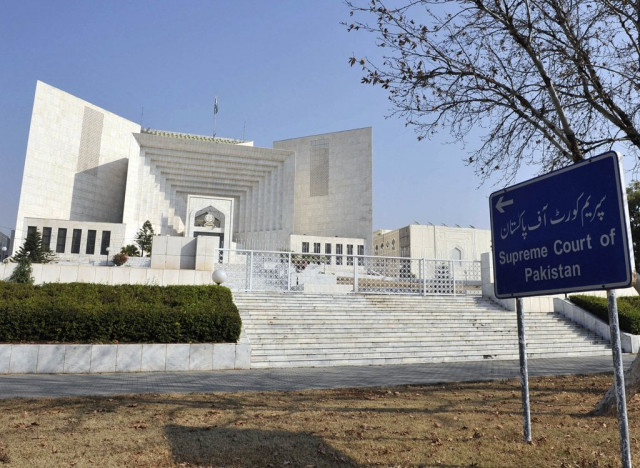SC order in Isa case unlawful: govt
Says by accepting judge’s review petition, apex court closed door of judges’ accountability

The PTI led federal government has contended that the Supreme Court’s April decision to accept Justice Qazi Faez Isa review petition against its June 19, 2020 verdict has closed the door of judicial accountability and that the order “suffers from actual bias and reasonable perception of bias”.
By a majority of 6 to 4, the apex court on April 26 accepted Justice Isa and others’ review petitions against a SC’s June 19, 2020 split order in which the court had directed the Federal Board of Revenue to conduct inquiry into foreign assets of Justice Isa’s family members.
The bench had also ordered the FBR to submit its report in the Supreme Judicial Council (SJC) – the constitutional forum that can hold a superior court judge accountable – which theoretically could revive a presidential reference seeking removal of Justice Isa.
However, on April 26 order, the SC also quashed the FBR’s inquiry report.
Later, the government filed a “curative review” against the judgment on behalf of the federal government, President Dr Arif Alvi, Prime Minister Imran Khan, Minister for Law Dr Farogh Naseem, Adviser to the PM on Accountability Mirza Shahzad Akbar and FBR legal expert Ziaul Mustafa Nasim.
The SC Registrar Office, however, returned the “curative review” after raising certain objections. Now the government functionaries have filed an appeal in chamber against the Registrar Office objections, mentioning dozens of grounds to review the court’s April 26 order.
Some government functionaries are not happy with the contents of the curative review petition which accused the majority judges of being biased. Harsh language is used in the appeal filed against the registrar office objections.
To make their case on bias, the government has referred to a newspaper article which claimed that two SC judges had written a letter to Chief Justice of Pakistan Gulzar Ahmed, asking him to make them a part of the larger bench hearing review petitions filed by Justice Isa against the June 19 order.
It said the additional attorney general on May 18 wrote a letter to the chief justice, asking him if such a letter existed. He had also requested the CJ to provide a copy of the letter, if it was ever written. However, neither the existence of such a letter has been denied nor its copy has been provided.
“The said news report confirms the grounds of bias and reasonable perception of bias taken up by appellants in the petition,” said the government's appeal in chamber.
The government stated that the April 26 order is unconstitutional, unlawful and against fundamental rights of the public at large and oppressive and therefore it is liable to be revisited, revised and recalled. The order is against the independence of the judiciary and its accountability, it added.
"The impugned order of the majority in review has sufficiently closed the doors of judicial accountability generally and accountability of Justice Isa in respect of the allegations and information which has come on record," said the review petition returned by the SC Registrar office.
In its appeal in chamber, the government said the standards of judicial accountability are diluted and a shield is provided to the judges of the superior courts to hide behind the doctrine of judicial independence so as to evade judicial accountability.
“The concept of independence of the judiciary does not mean to protect the benefits of individual judges. The majority judgment in the review petition is against Islamic jurisprudence and moral principles of judges code of conduct.”
It said the majority order usurped the role of the SJC in clearing Justice Isa. The government said Justice Isa and his wife Isa did not come to the court with clean hands.
“By failing to answer the three questions posed by the bench to Justice Isa, a clear and sufficient connection of Justice Isa with his wife’s foreign currency bank account from which the payment was made to acquire the London properties has been established.”
The government denied that scandalous language was used in curative review petition, adding that such language could be found in many reported judgments.
Regarding the SC Registrar Office objections about multifarious prayers in curative review petition, the appeal said there were nine prayers in Justice Isa’s wife Sarina Isa review petition but the SC institution branch did not raise objections to it.
"Can appellants (government functionaries) be treated discriminatorily in violation of Article 25 of constitution,” it said. In Pakistan, it said, the Supreme Court has held that a second review petition is not permissible. However, it may exercise suo motu jurisdiction to reopen, revisit, revise or review its earlier decision in terms of Article 184 (3), 187 and 188 of the Constitution.
“Therefore, it is for this reason the petition in this case employs the nomenclature of curative review or provision of information to initiate suo motu proceedings,” it added.


















COMMENTS
Comments are moderated and generally will be posted if they are on-topic and not abusive.
For more information, please see our Comments FAQ